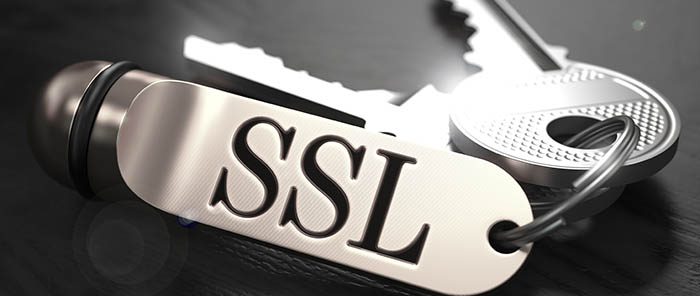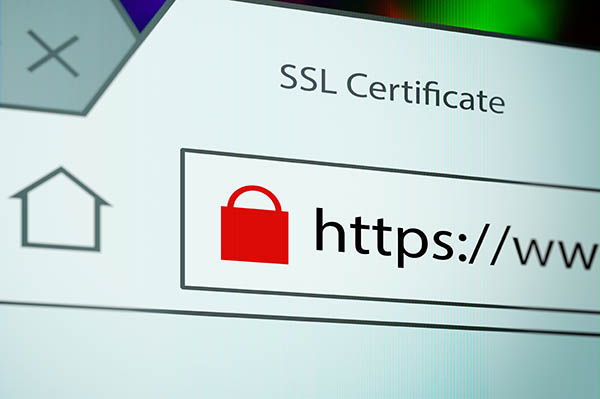
SSL: What You Need to Know to Keep Your Online Visitors Safe
Web Developer
Burns360
Every time a potential or established customer visits your website and shares personal information (like a credit card number, account login details, or even fills out a form), rest assured, there is someone out there who would love to get their hands on that data.
Fortunately, your visitors aren’t defenseless as long as you prioritize a three-letter acronym that can be your greatest ally on the World Wide Web. Those letters are SSL, which is short for Secure Sockets Layer.
SSL is the basis of what keeps internet communications secure and private. It was developed in the early 2000’s when the modern web gained popularity and people began placing trust in their computers to keep things like personal messages, banking information and other sensitive data more secure.
How does SSL work? Let’s keep it simple:
Simply put, SSL allows sensitive information to be transmitted safely by establishing an encrypted (or hidden) link between a web server and a browser. As a result, eavesdropping and tampering of personal information is prevented, thanks to the secure communication line between your computer and the website you’re visiting.
As a business owner, your number one responsibility when it comes to customers visiting your website isn’t excellent content or even your sales pitch. It’s the security of your customers. That’s why when working with a web developer, it’s critical to ask about SSL and then implementing it to keep your customers safe.
Here are a few more things you should know about SSL.
How do my visitors know my site has SSL on it?
There are a few different ways to check for this, but the most common and easiest way is by looking at the URL. If the website URL begins with HTTPS, instead of HTTP, then it is secured with some level of SSL. Also, most browsers will include a green padlock or “secure” symbol in the address bar that you can click on to get more detailed information on the type of certificate on the site.

Is it easy to implement SSL?
These days, installing an SSL certificate is pretty simple and inexpensive (it will cost you about $70 a year for the certificate). How long it takes to get set up will depend on factors such as the SSL type you choose, the validation process that has different requirements for the SSL types and how quickly any inquiries from the Certificate Authority, or CA, are responded to. In general, it can vary from a few minutes to a few days, but it’s definitely worth the effort—even if it takes longer than expected.
Click to tweet
What are the different types of SSL?
Standard SSL (Domain Validated): In this case, only the domain name (your web address) is validated. The only requirement is to verify that you maintain control of the domain, which can take as little as a few minutes, or as much as a few hours.
Deluxe SSL (Company Validated): With Deluxe SSL, the domain name and company need to be validated. The requirements include verifying control of domain and the legitimacy of your business, which can often be taken care of over the phone. The process can be completed in as little as 24 hours, but it generally takes a few days.
Premium SSL (Extended Validation): Premium SSL is similar to Deluxe in that both the domain and company name need to be validated, but the process is a lot more thorough. Requirements include verifying control of your domain and the legitimacy of your business, which is accomplished by checking the legal name, address, phone number, company personnel, and anything else requested by the CA.
SSL is your first line of defense in keeping your customers safe from the increasing number of people looking to capitalize on unsecured data.
Want to learn more about how we can safeguard your website? Let us know!


